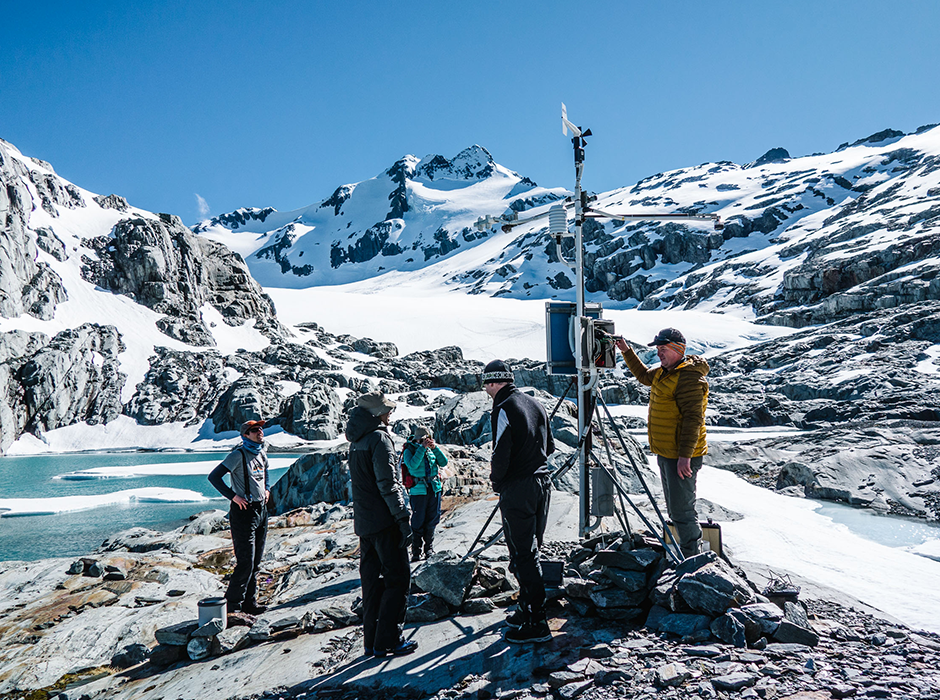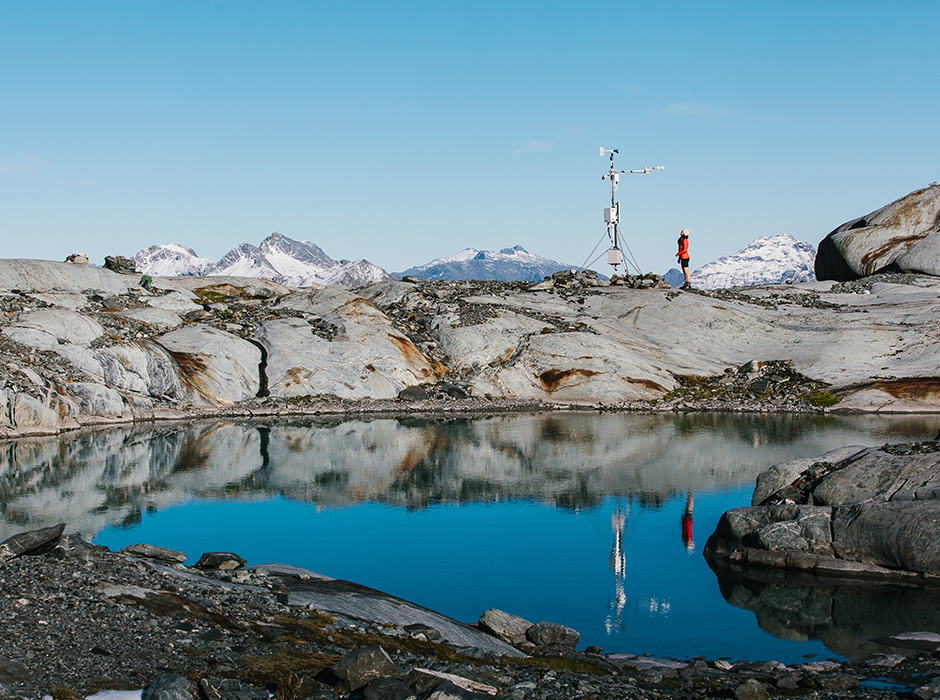
Professor Nicolas Cullen
Having grown up enjoying winter and summer holidays in the family mountain hut at the Craigieburn Valley ski area, new Professor of Geography Nicolas Cullen feels he has come full circle.
That circle has taken him around the world – from the Greenland ice sheet to Mt Kilimanjaro’s tropical glaciers and back to the Southern Alps and Antarctica – researching how snow and glaciers are linked to the climate system.
Cullen completed undergraduate and Master’s degrees at the University of Canterbury before beginning doctoral studies at the University of Colorado at Boulder working with Konrad Steffen, a Swiss professor who was totally devoted to the Greenland ice sheet, which also became the focus of Cullen’s PhD.
“Greenland holds the largest body of fresh water in the Northern Hemisphere, in the form of a massive dome of ice. If it melted, it would add the equivalent of about seven metres of sea level rise across all our oceans.”
By the late 1990s, scientists were beginning to realise the outlet glaciers in parts of Greenland were losing mass. Cullen was one of several postgraduate students recruited to look after a network of weather stations, established by Professor Steffen, known as the Greenland Climate Network (GC-Net).
“The GC-Net has provided unique meteorological observations that have been instrumental in revealing the rapid changes taking place on the Greenland ice sheet.”
After that, Cullen worked as a postdoctoral fellow at the University of Innsbruck working with a multidisciplinary team assessing the impacts of climate change on the retreat of glaciers on Mt Kilimanjaro, before coming to Otago in 2006.

Professor Nicolas Cullen and students at Brewster Glacier in the Southern Alps. Photo: supplied.
While he remains a collaborator on these international projects, his focus has switched to the Southern Alps, and Antarctica. A key contribution has involved establishing a long-term meteorological and glaciological monitoring programme at Brewster Glacier in the Southern Alps, which has become a globally recognised benchmark for glaciological research.
“One of the key outcomes of the research being conducted there is that it has provided a platform for undergraduate and postgraduate students to get involved in high-mountain field research, which has led to a range of student-led research projects,” says Cullen.
Research conducted by Cullen’s students has significantly advanced understanding of how extreme weather events and changes in climate are impacting the unprecedented retreat of Southern Alps glaciers.
This contributed to Cullen receiving, in 2014, the NZ Geographical Society President’s Award for Graduate Research Supervision, which is awarded to a thesis supervisor who demonstrates excellence in graduate supervision. As testament to the quality of the research-focused teaching environment Cullen has fostered, four of his former postgraduate students are now climate scientists for the National Institute of Water and Atmospheric Research (NIWA).
“One of the most satisfying aspects of my time at Otago is that it has provided me with a platform to help shape the next generation of leading climate scientists.”
Watch his IPL: “Chasing ice in a warming world”

Brewster weather station. Photo: supplied.